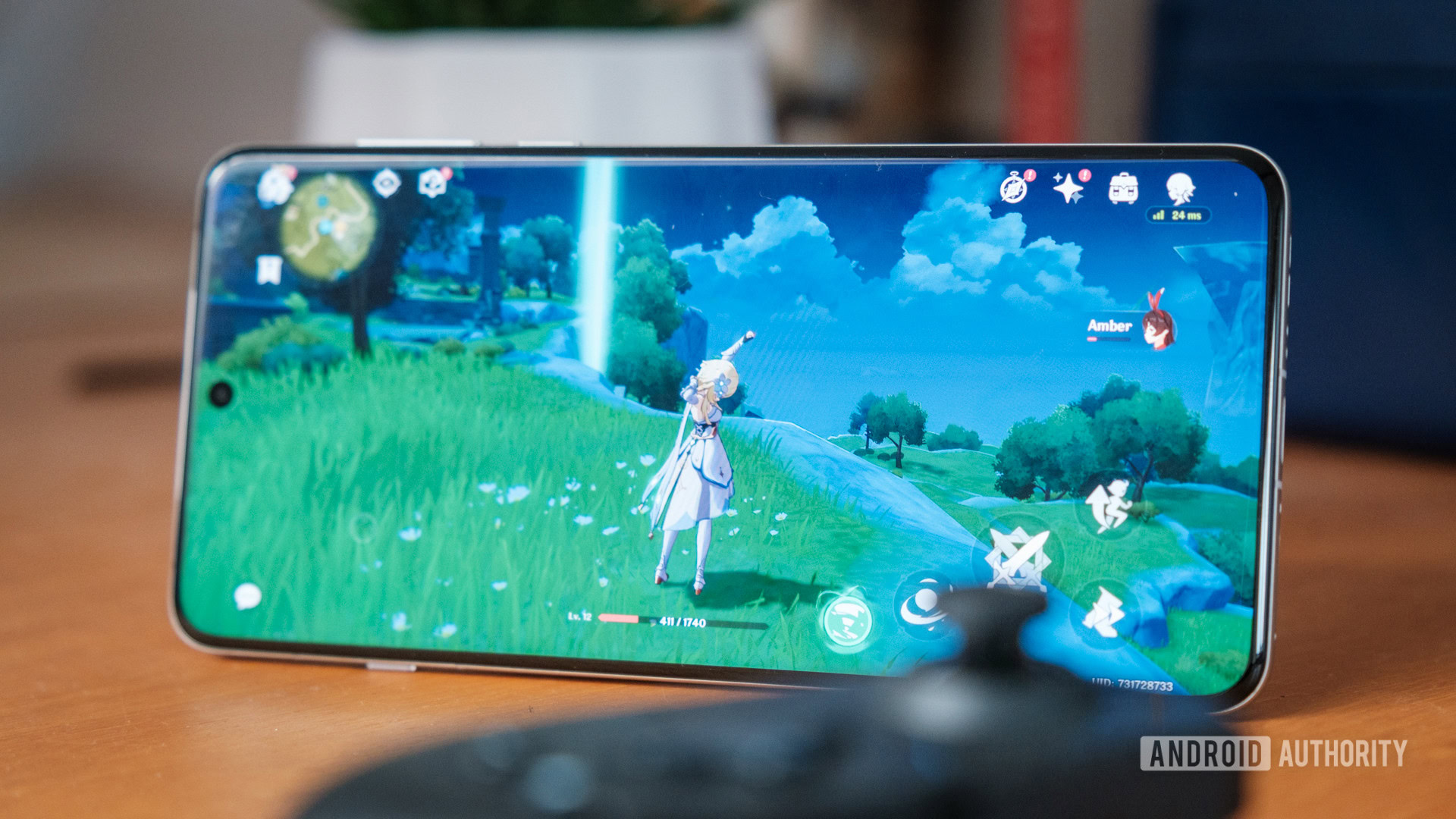
Robert Triggs / Android Authority
I was pretty impressed when I benchmarked MediaTek’s Dimensity 9400 processor inside the new OPPO Find X8 Pro. While it might not quite top the tables, it’s certainly no slouch, and our stress test results suggest plenty of thermal headroom to make it a brilliant choice for those protracted gaming sessions. But can it keep up with the mighty Snapdragon when it comes to real-world games? I grabbed the new flagship and a bunch of the most popular Android titles to see how the phone fairs in the real world.
I have the high-performing ASUS ROG Phone 9 Pro gaming phone, which packs a powerhouse Qualcomm Snapdragon 8 Elite processor, to compare against, along with the Google Pixel 8 Pro — with a considerably more mid-range GPU implementation. I’ve also included the ASUS Zenfone 11 Ultra with its Snapdragon 8 Gen 3 processor as an example of last-gen performance. Before we get into the results, however, let’s take a look at some benchmarks to see where we would expect things to stand.
You’re reading an Authority Insights story. Discover Authority Insights for more exclusive reports, app teardowns, leaks, and in-depth tech coverage you won’t find anywhere else.
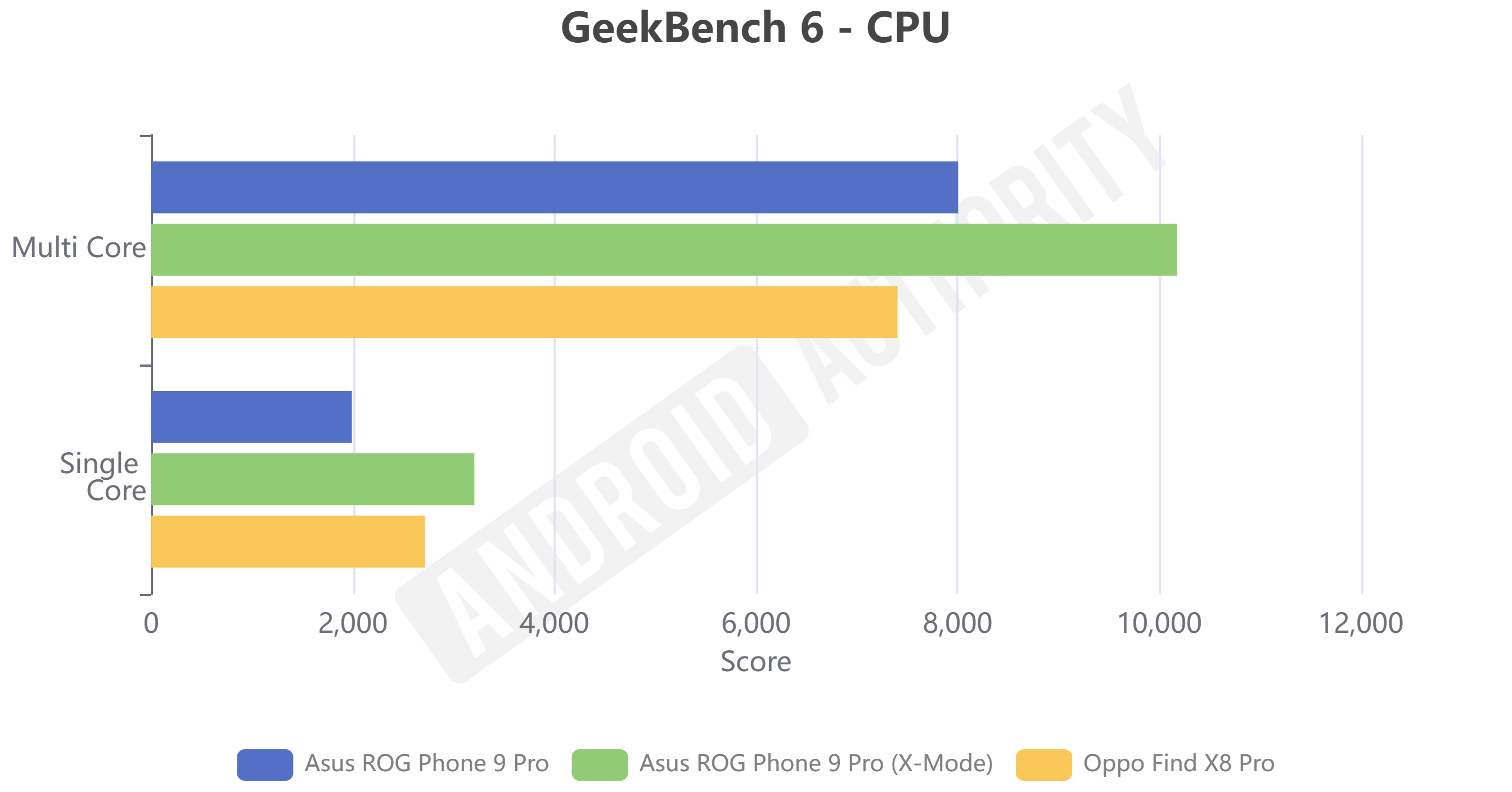
Robert Triggs / Android Authority
With its custom Phoenix-L and -M rather than Arm Cortex CPU cores, the Snapdragon 8 Elite has a significant advantage in Geekbench 6. However, few mobile games are CPU bound so this lead probably won’t count for much in this gaming test. Our 3DMark Wild Life Extreme and Solar Bay tests are more telling. Both chipsets and handsets offer virtually identical peak scores, suggesting similar frame rates. However, the Dimensity 9400 makes it through the stress tests with reasonable sustained performance for about 9 or 10 runs and quite low temperatures. To beat it, Qualcomm’s Snapdragon 8 Elite has to run significantly hotter, but will this discrepancy show up in actual games, which are typically less demanding than these stress tests? Let’s jump in
Dimensity 9400 vs Snapdragon 8 Elite gaming performance
We’ll start with a couple of popular FPS titles: COD Mobile to see if the phones can sustain a demanding 120fps frame rate and PUBG Mobile to throw in HDR graphics and 4x AA requirements at 60fps. Neither of these two aging games would be considered the pinnacle of mobile graphics, but their gameplay styles demand high and consistent frame rates.
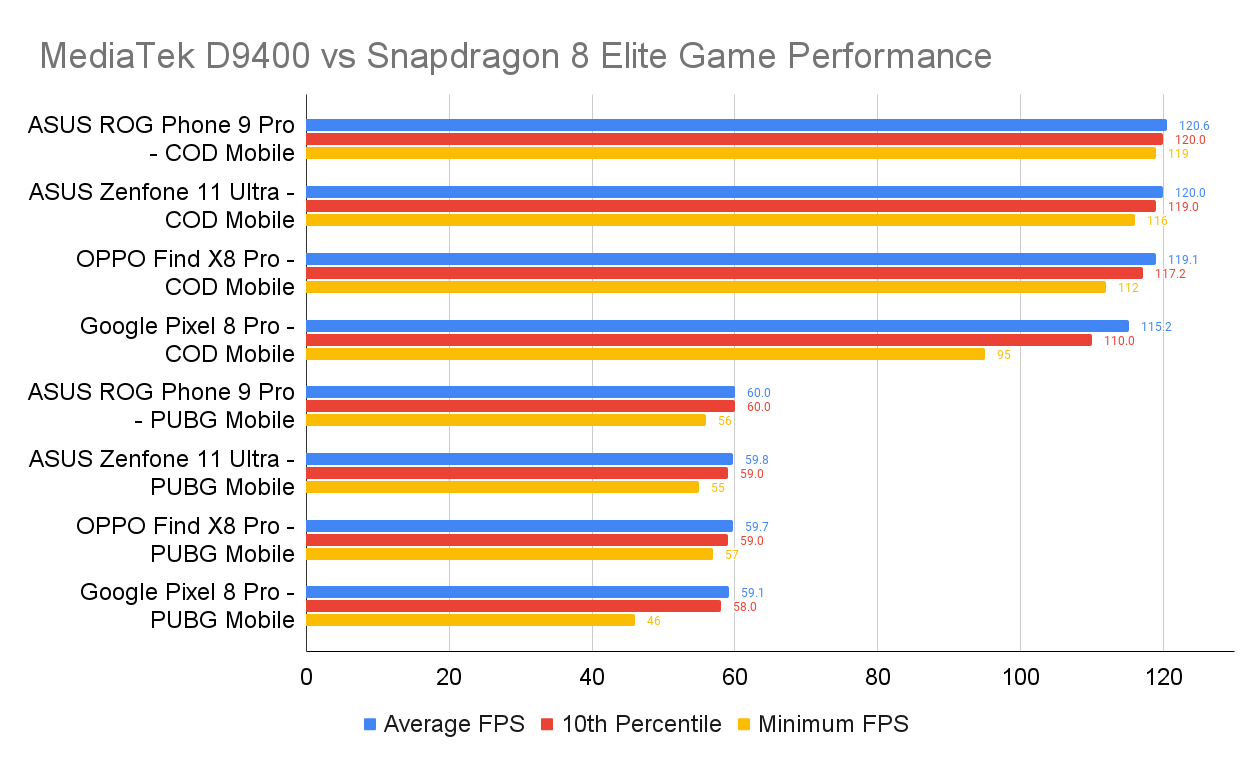
Robert Triggs / Android Authority
MediaTek’s Dimensity 9400 hammers home solid frame rates here. While it’s not quite as locked tight to 120fps as the Snapdragon 8 Elite is in COD Mobile, the bulk of the time it’s above 117fps, and you’re unlikely to notice the rare dips to a still healthy 112fps that I saw across two rounds. But as we’re being picky, this result is not quite as buttery smooth as last generation’s Snapdragon 8 Gen 3 either, which scores marginally better top 90% and minimum frame rate results in this game.
The roles reverse a little in PUBG Mobile, where the OPPO Find X8 Pro and its MediaTek chip are a bit more consistent than the Snapdragon 8 Gen 3 in terms of minimums. Again, though, it’s not quite as tightly locked to 60fps as the 8 Elite, but you’ll be hard-pressed to notice or feel that sub-1fps average difference. While clearly, neither of these games is hugely demanding for a flagship chip; we should note the minor upgrade in minimum FPS over last year’s Google Pixel 8 Pro, pointing to a marginal benefit to springing for these more performance chips, at least for serious gamers.
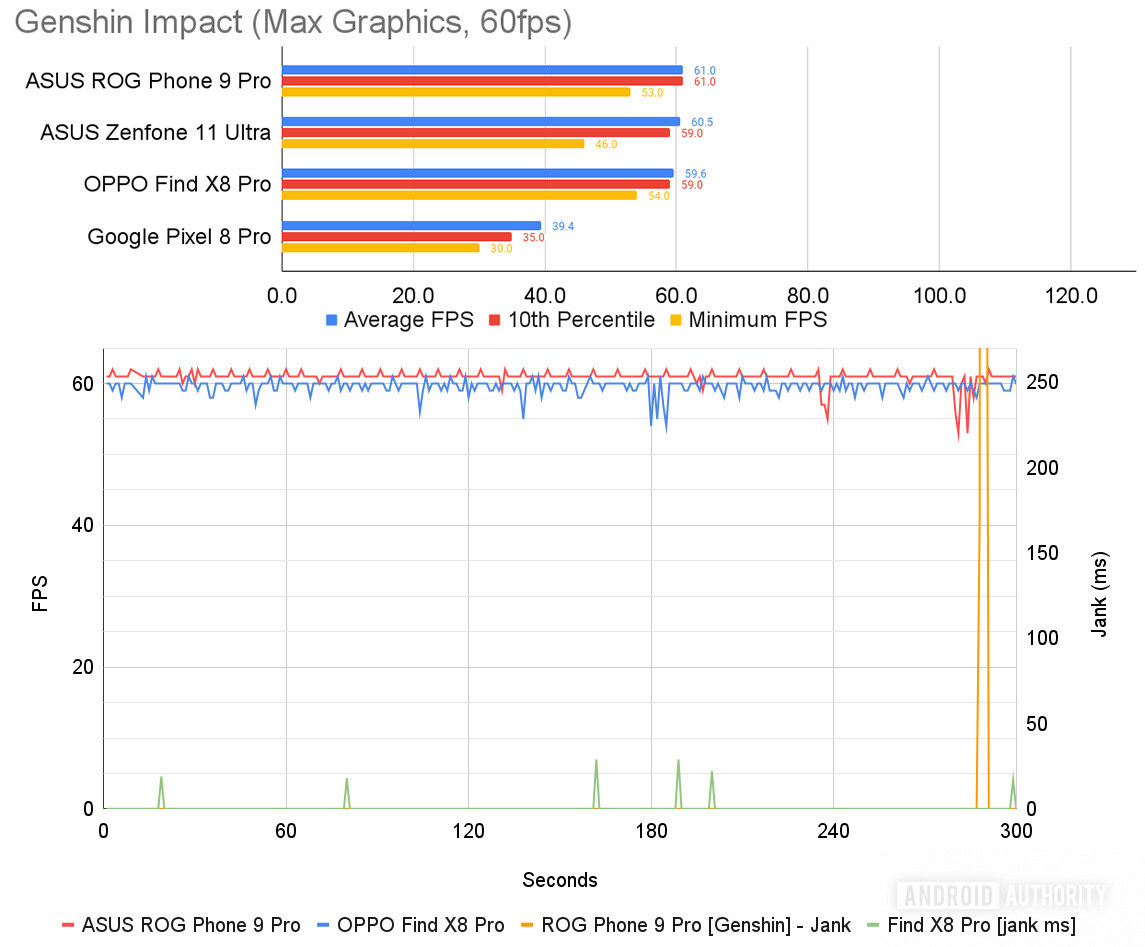
Next, we turn to Genshin Impact. Although four years old at this point, its open-world landscapes are still some of the more demanding graphical vistas in the mobile gaming space, especially when running the game maxed out with a 60fps target. The Dimensity 9400 meets that target firmly, for the most part, with 90% of frames counted sitting above 59fps and a minimum fps that’s actually a frame better than the latest ROG. Likewise, the phone provides a better minimum than the last-gen Snapdragon 8 Gen 3, so when it rarely dips, it’s not as perceivable.
In-game performance is virtually indistinguishable between MediaTek’s and Qualcomm’s finest.
However, the Snapdragon 8 Elite again has a marginally tighter grip on exactly 60fps, though neither phone struggles here. While the MediaTek chip presents the regular odd jank and missed frame, they’re below 22ms and, therefore, shouldn’t be noticeable. Our 8 Elite actually saw a more noticeable jank towards the end of our five-minute stint, but that seems to be an anomaly.
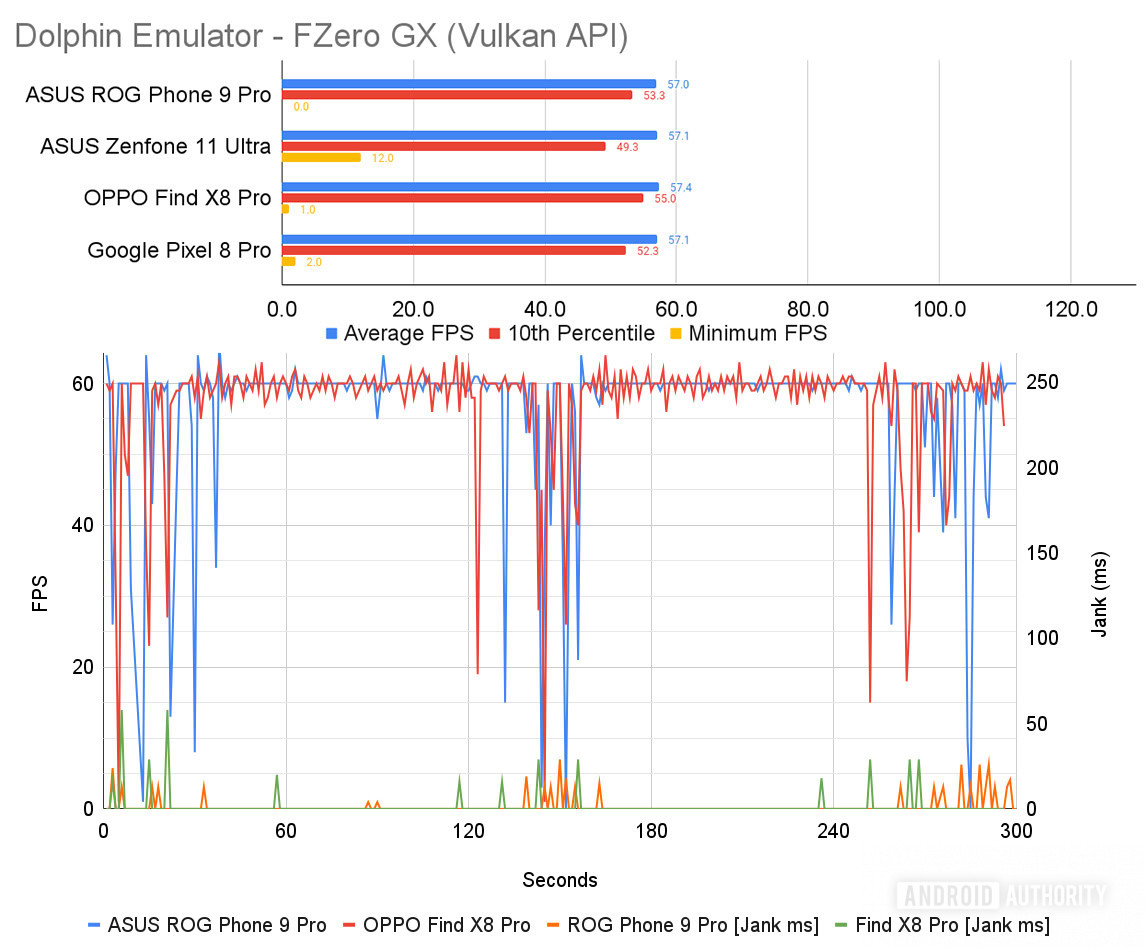
Finally, we come to our emulator test with the fast-paced FZero GX. While menus continue to present janky-ness for every phone I’ve ever tested, the Dimensity 9400 handles these sections marginally smoother than the 8 Elite. The OPPO Find X8 Pro and its MediaTek chip also match and even exceed Qualcomm’s greatest for average and 10th percentile frames, surpassing the last-gen Snapdragon 8 Gen 3 while it’s at it. As we’ve seen before, however, Arm’s Mali architecture does quite well here, and even the weaker Pixel 8 Pro manages solid frame rates in-game. Speaking of, the MediaTek chip appears a little more erratic, with regular minor dips below 60fps, while ASUS’ gaming phone locks this in at a mostly consistent value. Still, with minimal janks detected on either handset, both feel very smooth when playing.
Should gamers buy MediaTek?
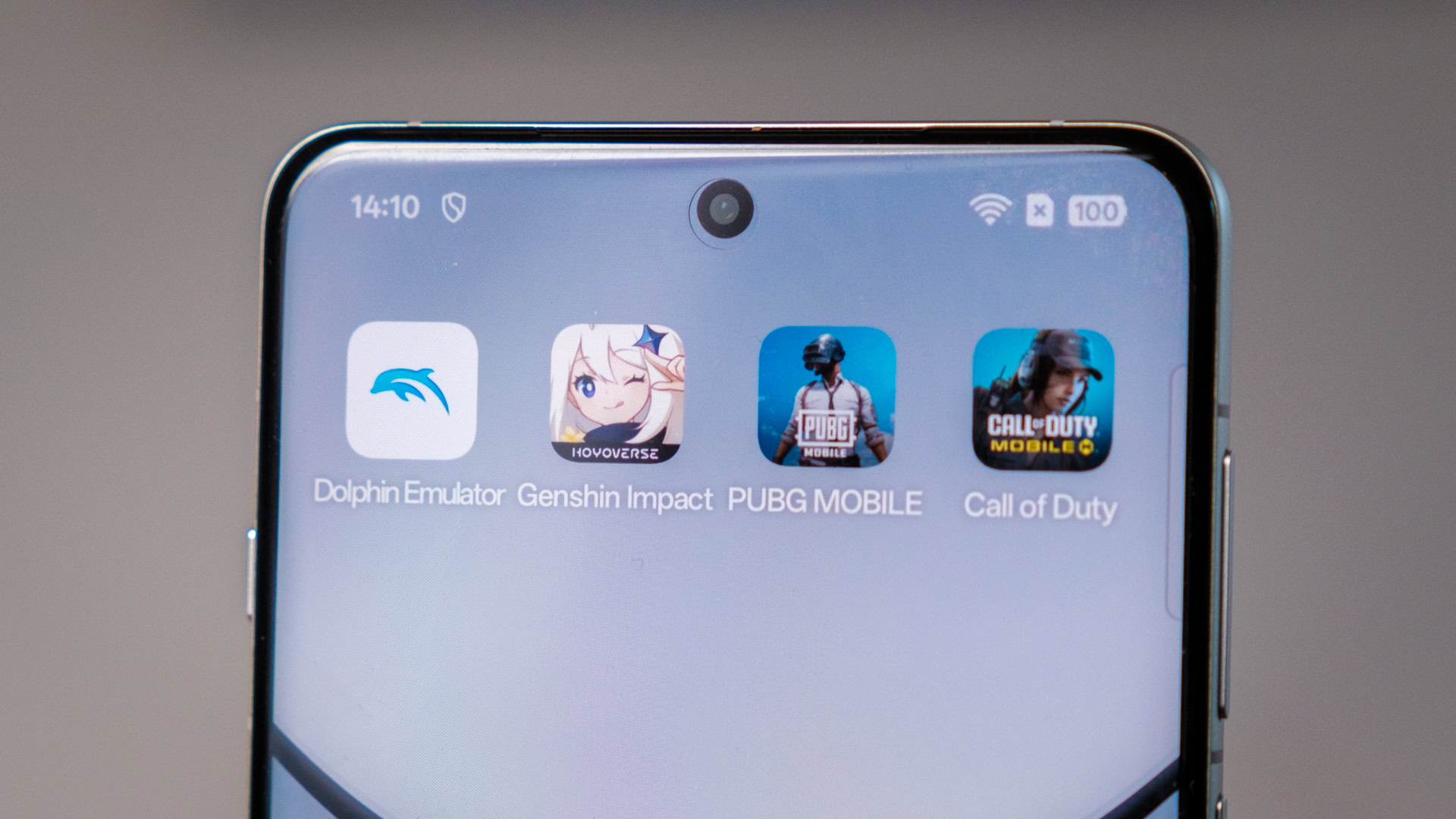
Robert Triggs / Android Authority
Based on these four in-game tests, there’s very little to tell between the performance of the MediaTek Dimensity 9400 and Qualcomm Snapdragon 8 Elite. Their benchmarking similarities are equally well reflected in the real-world games, making either a superb pick for those wanting to ensure rock-solid frame rates today and in the foreseeable future. This is also a solid result for Arm’s Immortalis G925, which has previously been (perhaps unfairly) considered a slower GPU than Qualcomm’s Adreno.
Qualcomm’s Snapdragon 8 Elite might have a slight fps edge in some instances and seems to stick to 60fps a little tighter, but that’s not enough to earn it a win here. The big caveat is the 8 Elite’s stress test temperature results and our hands-on experience with hotter Snapdragon phones than the well-cooled ASUS ROG Phone 9.
Which chip would you pick for mobile gaming?
13 votes
While real games don’t become anywhere near that warm, at least not in the 20 minutes or so I could afford to play, much higher temperatures point to the potential for more aggressive throttling if playing for longer, charging while playing, or simply living in a much warmer country than soggy old Blighty. There are also future games to consider, which will eventually stress phone hardware more and cause temperatures to rise. The 8 Elite might not handle games as well in several year’s time. I have no such concerns about the Dimensity 9400, at least not in the implementation I’ve tested in the OPPO Find X8 Pro. We’ve also benchmarked the vivo X200 Pro which is warmer, but nothing approaching the heat we’ve seen from some 8 Elite phones.
Of course, there’s availability too. Most flagship MediaTek-powered phones, like the OPPO Find X8 Pro and vivo X200 Pro, aren’t available in the US. I certainly wouldn’t go through the hassle and carrier hoops to import one, especially as there’s no clear performance advantage for the Taiwanese chipset. Still, if these phones are on sale in your country, gamers shouldn’t hesitate to pick one up.
